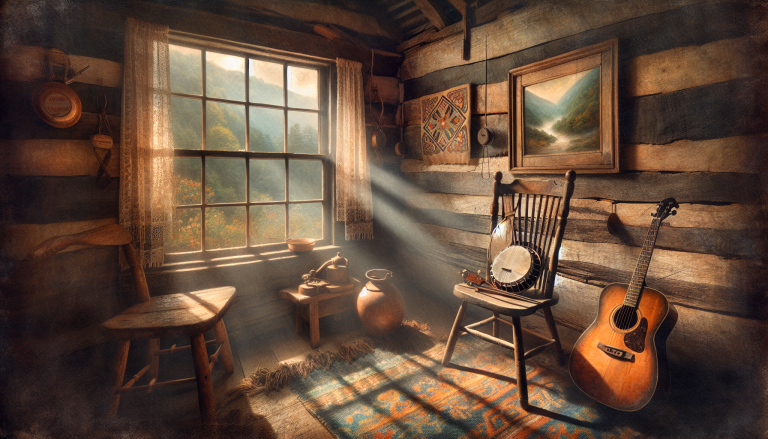The Soulful Echoes of Appalachian Folk Music: A Journey Through America’s Musical Heritage
Roots of Resilience: The Origins of Appalachian Music
In the misty mountains of Appalachia, a musical tradition was born that would become one of the most profound expressions of American cultural identity. Appalachian folk music emerged from a complex tapestry of cultural influences – Native American rhythms, European immigrant ballads, African American musical traditions, and the raw emotional landscape of rural mountain communities.
The roots of this genre stretch deep into the late 18th and early 19th centuries, when settlers from Scotland, Ireland, and England brought their musical traditions to the rugged Appalachian mountain range. These early settlers carried with them centuries-old ballads, fiddle tunes, and musical storytelling techniques that would form the backbone of what we now recognize as Appalachian folk music.
The Musical Landscape: Defining Appalachian Folk
Appalachian folk music is more than just a genre – it’s a living narrative of survival, struggle, and profound human emotion. Characterized by acoustic instruments like the fiddle, banjo, guitar, and dulcimer, the music tells stories of mountain life, love, hardship, and spiritual resilience. The sound is raw and unfiltered, with a haunting quality that speaks directly to the human experience.
Instrumentally, the music blends intricate fingerpicking styles with complex rhythmic patterns. The banjo, brought to the region by African slaves and later embraced by white mountain musicians, became a defining instrument of the genre. Its distinctive sound – bright, percussive, and deeply expressive – became a musical voice for entire communities.

Legendary Voices of the Mountains
Several artists stand as towering figures in Appalachian folk music history. The Carter Family, often called the “First Family of Country Music,” revolutionized the genre in the 1920s and 1930s. A.P. Carter, along with his wife Sara and sister-in-law Maybelle, collected and transformed traditional mountain ballads into recordings that would influence generations of musicians.
Jean Ritchie, known as the “Mother of Folk,” brought Appalachian mountain music to national prominence. A Kentucky-born musician and songwriter, Ritchie preserved and celebrated the dulcimer tradition, introducing audiences to the authentic sounds of her mountain heritage.
Landmark Recordings and Cultural Impact
Albums like “Folkways: A Vision Shared” and field recordings by musicologists like Alan Lomax became crucial in documenting and preserving Appalachian musical traditions. These recordings captured not just music, but entire cultural ecosystems – the sounds of work songs, spiritual hymns, and generational storytelling.
The genre’s influence extends far beyond its geographical origins. Appalachian folk music became a foundational element of American roots music, directly influencing country, bluegrass, and contemporary folk traditions. Artists like Bob Dylan, Joan Baez, and Emmy Lou Harris have all drawn inspiration from these mountain musical traditions.
Spiritual Dimensions: More Than Just Music
For Appalachian communities, music was never just entertainment – it was a form of survival, communication, and spiritual expression. Gospel influences intertwined deeply with folk traditions, creating a musical landscape that was both secular and sacred.
As one traditional musician once remarked, “These songs are our history, our bible, our newspaper – they tell our stories when no one else would listen.”
Legacy and Continued Relevance
Today, Appalachian folk music continues to evolve. Contemporary artists like Tyler Childers and Sturgill Simpson are reimagining the genre, bringing mountain musical traditions into dialogue with modern sensibilities while maintaining deep respect for their roots.
The music remains a powerful testament to cultural resilience. It speaks of communities that survived economic hardship, cultural marginalization, and environmental challenges through the transformative power of musical expression.
Modern ethnomusicologists and historians recognize Appalachian folk music as a critical component of American musical heritage. It represents a unique fusion of cultural influences – a musical tradition that is simultaneously deeply local and universally human.
From the intricate fingerpicking of a mountain ballad to the raw emotional power of a work song, Appalachian folk music continues to remind us of music’s fundamental role: to tell our stories, preserve our memories, and connect us to something larger than ourselves.
As the mountains themselves stand as timeless witnesses, so too does this music – resilient, authentic, and eternally compelling.